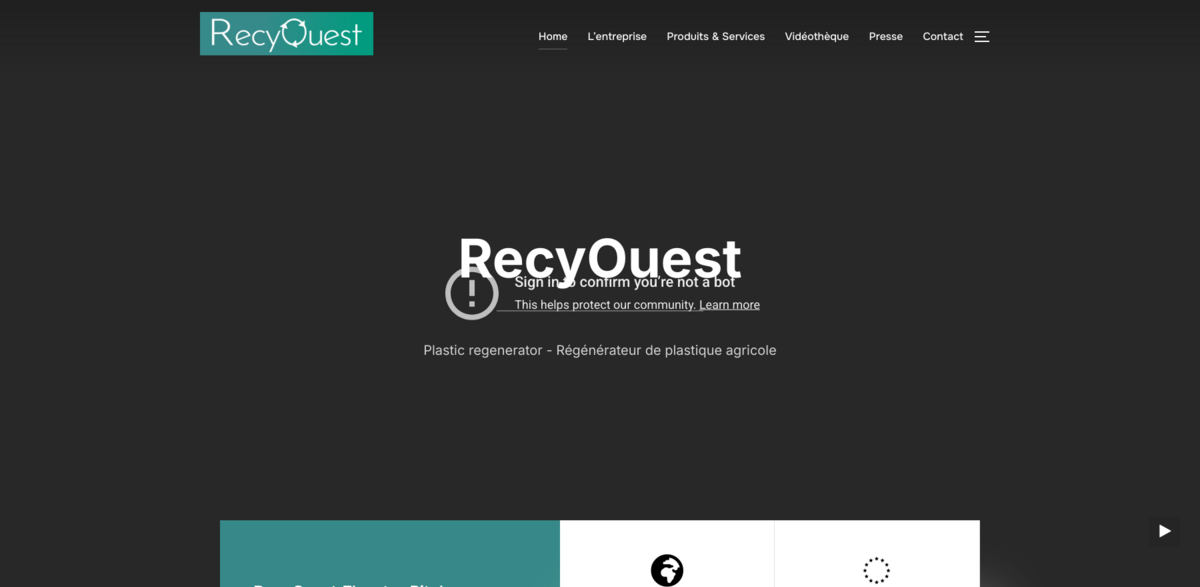What the Project Is
RecyOuest recycles and regenerates agricultural nets in Normandy, France. This project offers a unique solution worldwide for recycling agricultural bale nets without using water – a truly groundbreaking approach in the field of environmental innovation. Based in the heart of Argentan, the RecyOuest initiative is dedicated to transforming used agricultural nets into sustainable resources. The project is all about giving non-recycled thermoplastics filamentary a new lease on life, ensuring that these materials find a second purpose in a circular economy. Simply put, this is an eco-responsible, innovative solution built on the foundation of reducing waste and minimizing environmental impact.
Main Benefit
The primary benefits of the RecyOuest project shine through in its impressive key figures and facts:
- In the World: 250,000 tons of agricultural nets and twines are used each year globally.
- In Europe: Over 120,000 tons of agricultural nets and twines are utilized annually.
- In France: 11,000 tons of agricultural nets and 15,000 tons of agricultural twines are consumed each year.
Revolutionizing Agricultural Nets Recycling
Since its creation, RecyOuest has been fully committed to the circular economy, embracing an innovative approach that has been validated by a thorough life cycle assessment (LCA). The process, which takes merely one minute to appreciate in its entirety, stands as proof that industry and environmental stewardship can go hand in hand. With cutting-edge technology at its core, RecyOuest recycles and regenerates agricultural plastics to produce high-density raw materials – these, in turn, can be reintegrated into the manufacturing of new products made from HDPE. It’s a win-win scenario where innovation meets sustainability… turning what was once discarded into something valuable.
Eco-Responsible Innovation
Embodying an eco-responsible ethos, RecyOuest’s work ensures that natural resources are preserved and the carbon footprint is reduced. By transforming worn-out nets into sustainable assets, the project makes a significant environmental contribution. The approach is not only innovative, but it also opens the door for further developments and expansion within the circular economy. With support from entities like Territoires d’industrie, République Française, Région Normandie, Argentan Intercom, ADEME, and France Relance – the backing of key financial players ensures that the project can continuously evolve and have a lasting impact. The infusion of public and industrial support underscores the project’s potential as a model for future environmental initiatives.
Advanced Circular Economy
RecyOuest operates in a domain where the classic linear models of production and consumption are being turned on their head. Instead of allowing agricultural plastics to contribute further to landfill woes, the project breathes new life into them. The technology employed is state-of-the-art, harnessing efficiency to produce raw materials that meet high standards of quality and performance. With a commitment to sustainable practices, the regenerated materials are reintroduced into manufacturing cycles – a seamless process that contributes significantly to resource conservation. There is a clear focus on reducing filamentary thermoplastics from agriculture by ensuring they can be reused in the creation of modern, eco-friendly products.
Contemporary Approach to Sustainability
The method adopted redefines conventional recycling and regeneration practices within a contemporary framework. RecyOuest’s process is not just about technical innovation; it’s an intelligent integration of environmental responsibility into everyday industrial practices. By using a water-free technology, the project sets itself apart from others in the recycling industry, making it an exemplary case of how innovation can lead to a reduction in water usage and energy consumption. The approach is both practical and aspirational – a clear demonstration that sustainability can be successfully merged with high-efficiency production techniques. And yes, the results speak volumes when it comes to preserving our natural resources for future generations.
Project Impact
- SDG 9: Industry, Innovation and Infrastructure
- SDG 12: Responsible Consumption and Production
- SDG 13: Climate Action
Future Perspectives
Looking ahead, the RecyOuest project continues to pave the way for progressive, eco-conscious industrial practices. Future perspectives seem bright as the initiative is positioned to inspire broader adoption of sustainable recycling methods. With its proven model and the support of key financial stakeholders, the project builds on a legacy of innovation and environmental preservation. The transformation of used agricultural nets into high-density raw materials stands as a testimony to what can be achieved when modern technology intersects with a genuine commitment to sustainability. This forward-thinking approach not only drives incremental improvements but also offers a scalable solution to tackle global challenges associated with agricultural plastic waste. With each step, the initiative reinforces the message that giving new life to non-recycled thermoplastics filamentary is more than a process – it’s a movement towards a smarter, greener future.






















